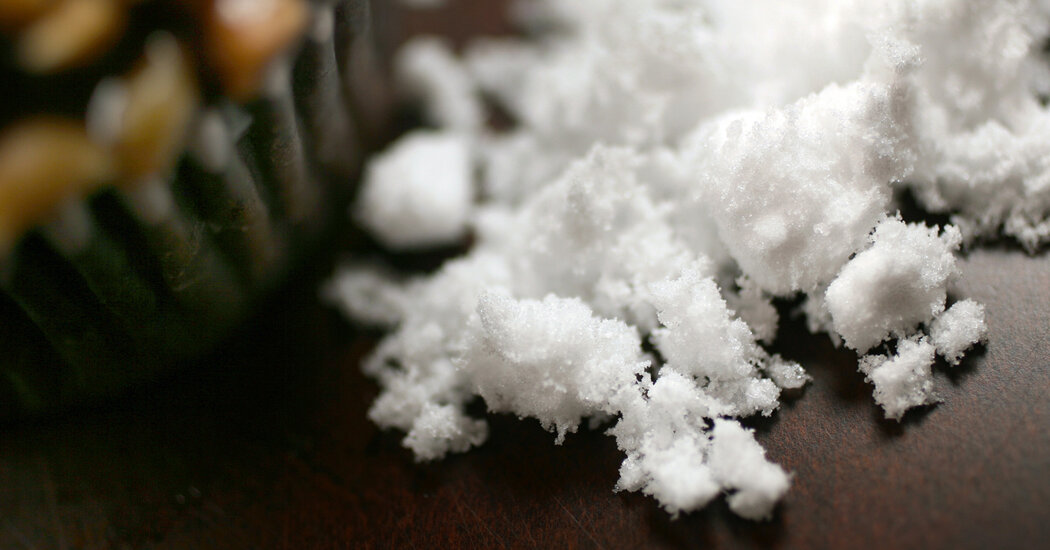New research suggests the sweetener is linked to health issues. Here’s what to know.
A new study linking the low-calorie sugar substitute xylitol to an increased risk of heart attack or stroke has once again raised questions about the risks and benefits of sugar substitutes.
Xylitol is a sugar alcohol found naturally in fruits and vegetables, and even produced in the human body at very low levels. But it is often synthetically produced and is increasingly being added to processed foods, like candies and “low-sugar” baked goods, because it has 40 percent fewer calories than regular sugar does and doesn’t cause blood glucose to spike after a meal. The study authors said this rise in consumption was concerning, as the people most likely to turn to the sugar substitute may already be trying to manage conditions like obesity and diabetes that also increase the risk of cardiovascular issues.
“They may think they’re making a healthy choice by picking xylitol over sugar, yet the data argues that it is not the case.” said Dr. Stanley Hazen, the chair of cardiovascular and metabolic sciences at the Cleveland Clinic’s Lerner Research Institute and an author of the study. Last year, Dr. Hazen and his colleagues found a similar association with another sugar alcohol, called erythritol.
For the new study, the researchers measured the levels of xylitol in blood plasma samples of over 3,000 participants who had fasted overnight. They found that people with the highest xylitol levels had roughly double the risk of heart attack, stroke or death within the next three years compared to people with the lowest levels. The results were published in the European Heart Journal this month.
The research does not prove that sugar alcohols like xylitol and erythritol directly cause heart attacks, only that they’re associated with an increased risk. Because the researchers did not track the participants’ diets, other foods may also have contributed to that risk, said Marta Yanina Pepino, an associate professor of food science and human nutrition at the University of Illinois at Urbana-Champaign. And it’s possible some of the participants naturally produce more xylitol, and their high levels did not come entirely from food and drink, she said.
To address some of these concerns, Dr. Hazen’s team also fed xylitol to mice, added it to human blood samples in a lab and also gave drinks containing xylitol to 10 healthy volunteers. In each of the tests, xylitol increased how quickly platelets formed clots, which could eventually lead to a heart attack or stroke.
